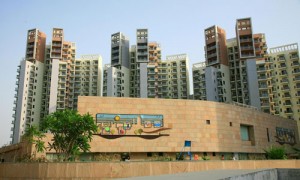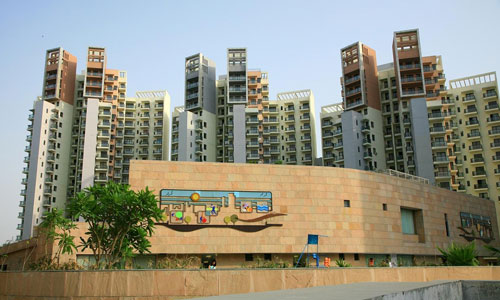 The level of foreign direct investment (FDI) in the real estate sector, which was at a low in 2010-11, is unlikely to show a quantum jump this year, courtesy a slow GDP growth rate, high debt levels of the real estate developers, labour shortage and economic crisis in the US and Europe.
The level of foreign direct investment (FDI) in the real estate sector, which was at a low in 2010-11, is unlikely to show a quantum jump this year, courtesy a slow GDP growth rate, high debt levels of the real estate developers, labour shortage and economic crisis in the US and Europe.
A recent industry report shows that FDI in 2010-11 was the lowest in the last four years. According to the FICCI-Ernst & Young real estate report, the FDI in the sector declined to 6 per cent of the total direct investment coming to India in 2010-11 —the lowest in four years. Housing and real estate attracted 8.9 per cent of the total FDI in 2007-08, 10.3 per cent in 2008-09 and 11 per cent in 2009-10.
Real estate attracted just $1.6 billion worth of FDI in 2010-11, against $4.1 billion in 2009-10, $3.8 billion in 2008-09, and $3.1 billion in 2007-08, the government estimates show. The total FDI inflow into India was $27 billion in 2010-11, $37 billion in 2009-10, $37.8 billion in 2008-09 and $34.8 billion in 2007-08, as per data provided by the ministry of commerce and industry.
“Foreign investment inflow in the Indian real estate sector will only deteriorate if the economic problems in Europe and the US persist longer,” says R R Singh, Director General, National Real Estate Development Council (NAREDCO).
According to Kaustuv Roy, Executive Director of global real estate consultancy firm Cushman and Wakefield, a lot will depend on the bookings this season. While the developers have pinned their hopes on festive season sales, Roy argued that people may hold on to the funds in the midst of a weak global economy. In India, real estate sales have been hit due to the high interest rates too.
“The debt situation of majority of real estate companies is bad,” notes Singh. “Since the growth outlook is not being very optimistic, foreign investors are getting discouraged to invest in the sector.”
Exit route not being easy is another reason deterring the foreign direct investors. In three years if an investor is not able to exit where a venture is not profitable, it discourages the foreign investors.
Experts believe the lack of confidence in the market for tying up with developers is discouraging foreign investors. Things will start looking up if the Land Acquisition Bill is passed in the winter session (of Parliament).
Small developers, however, are still getting foreign investment at a predetermined high interest rate of 25-30 per cent, according to Singh. “The debt-free small developers with small projects have clear accountability, compared to a big developer.”
It is generally believed that with delays in delivery becoming a common phenomenon in the sector, investors are going to look at the execution of the projects. Once a delay happens, it affects the cost and the price of the project.
And it all comes back to the domestic economy. Adds Singh: “With inflation persisting at over 9 per cent despite the efforts of RBI, and interest rates touching the roof, the demand for property will fall, ultimately affecting the foreign investment.” However, the FDI level could move up if the economy grows at 8-9 per cent and the demand gets a boost, he notes.
The economy grew just 7.7 per cent in the April-June quarter of 2011-12. RBI last month went for a rate hike – its 12th since March 2010. With inflation still stuck at over 9 per cent, economists expect more hikes to come.





